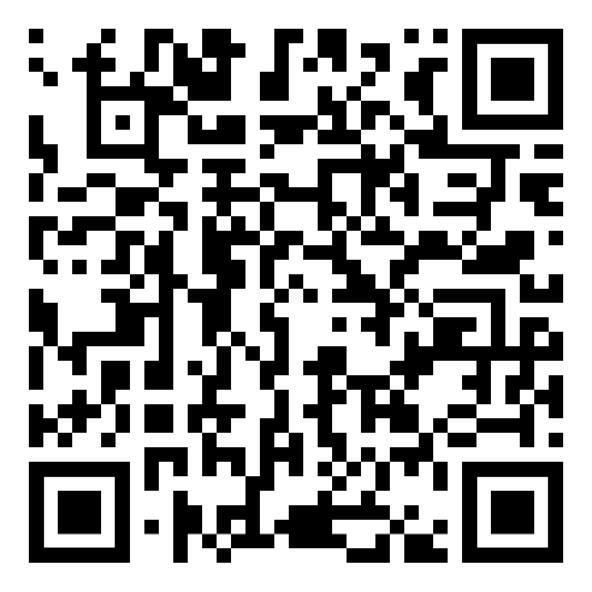












Delta College President Michael Gavin, students, and faculty speak about the “Dear Colleague” letter and possible effects of cuts to federal funding and DEI programs

UNIVERSITY CENTER, Mich. – Colleges and universities across the nation are facing a deadline today to end all diversity programs or face federal funding cut offs. Delta College has remained headstrong in its stance against these executive orders, with an understanding that federal funding cuts would be devastating—but unlikely.
“There are three branches of government, the executive branch is not the one that makes law,” Delta College President Michael Gavin says.
Correspondence sent by President Donald Trump's administration Feb. 14, known as the “Dear Colleague letter,” gave institutes 2 weeks to end all programs labeled as “diversity, equity, and inclusion” (DEI).
These executive orders sparked concern across the country, leaving many students worried over losing organizations that support their education. Gavin spoke to these concerns in an interview with the Delta Collegiate on Wednesday.
“One of the elements that came up today was we don't want students to feel like they don't belong. In fact, we want them to feel like they do belong,” Gavin says. “If they think that things are changing because of what they're hearing
in the national news, get in contact with your professor, with my office, with the Vice President of Student Services office.”
Students across Delta are concerned that if there is no fight to keep these programs active, it may make discrimination seem acceptable. Fearing that without initiatives like DEI, the clubs and organizations they worked to build would no longer exist. Delta College students and faculty shared their stance on how these programs help to support everyone.
“It's not just about race, it's handicapped people,” a member of the Society of Hispanic Leaders Abril Serrato says. “It's not just about gender, what about a woman that's on maternity leave that has a baby, what are her rights? I mean, It's just about humans. It's more than just a race. It's more than sexual orientation.”
DEI is often mischaracterized as being exclusionary, but Delta students and advisors point out the inherent inclusivity of these programs. This ideal was one students and faculty honed in on, sharing that these programs being cut would affect everyone.
“It's either going to break us, divide us, or unite us, and I feel that we have to be united. We have to put differences aside because it's not just a race thing,” said Society of Hispanic Leaders Advisor Monica Hernandez.
Gavin pointed out that the Dear Colleague letter accused DEI programs of violating Civil Rights laws. The programs, he says, are in line with the Elliott Larsen Act, which requires Michigan institutes to be in accordance with state Civil Rights laws.
The misunderstanding of DEI goes further than just the letter, with people feeling there is a general misconception of what belonging, diversity, equity, and inclusion mean and represent.
“They don't know that it stands for diversity, which breaks out into so many things,” Dorian Phelps, the advisor for the Black Student Union says. “I mean those words taken just in themselves, belonging, who doesn't want to belong somewhere, right? Equity, a fairness about the world. Who doesn't want fairness? Inclusion. Come sit down at the table. You're in this community.”
Gavin, who founded the national group “education for all” —a collective of over 1200 higher education presidents and professionals supporting DEI programs—has centered his career around equity.
Education for All has seen first-hand what these programs can do, with a 15% increase in overall graduation rates over three years. Within these statistics, there has been an increase in Hispanic graduation rates of 19%, and 20% for Black students. Because of this, these demands have not been met lightly, and Delta College has no plans to cut any of its “belonging, equity, diversity, and inclusion” (BEDI) programs.
Many shared their support in the decision to continue fighting for these programs, feeling it is common sense to foster belonging and equity.
“It says DEI is about ensuring we rule out systemic discrimination,” Society of Hispanic Leaders member Alicea Gonzalez-Lopez says. “Why would you want to take that? Why would you want discrimination to even be an option?”
Despite this support, Gavin was candid about what losing federal funding would mean for the college. Delta College relies on federal funding to provide students with an education and keep campuses open.
“If we didn't have Federal financial aid, that for almost all community colleges in the country, would be catastrophic,” Gavin says. “I don't---I wouldn't let that happen, meaning I would not let the college fall over a stance, but I also don’t think that would happen.”
The demands in the Dear Colleague letter were taken to court Tuesday by the American Federation of Teachers, the union’s Maryland affiliate, and the American Sociological Association. The education groups are in pursuit of blocking the order in the letter from going through, adding to Delta’s security
On Thursday March 27, Pioneers Rising is holding a deliberative dialogue, Queer Rights at Risk: Understanding Threats and Preparing Responses. Local experts and activists will attend the panel at Delta College to discuss LGBTQ+ rights, challenges and actions for change.
The panelists include Michigan Attorney General Dana Nessel, Great Lakes Bay Pride Executive Director Scott Ellis, Emme Zannoti, the Senior Director of Movement Building & Public Affairs at Equality Michigan, and Pioneer Rising President Aya Kirn.
The event is in room N007 and starts at 6 p.m. There will also be a pre-social and survey at 4:30 p.m. The panel is free and the public is welcome.
For more information contact Pioneers Rising at pioneersrisng@gmail.com.
in the decision to make no change in operations.
“We have no intention of stopping the work that we're doing with diversity, equity and inclusion,” Gavin says.
He expressed that he would want DEI groups to be part of the decision-making process if programs have to be shut down or changed.
Delta’s staff and students underscored the importance of continuing to educate ourselves and striving to keep an open mind about communities around us.
“I think one of the best things we can do is be curious about each other and that breaks down barriers. It alleviates fears,” Phelps says. “You soon find out how many more human and humane commonalities you have with each other.”
The 2025-26 FAFSA form is now open for students to complete. The Michigan deadline to submit the form is July 1. Delta College offers a variety of resources to assist students in the application process.
To access Delta’s instructions for completing the FAFSA, find the school code, and explore additional resources, visit the Delta College website. The events calendar features a full list of workshops and events where students can receive hands-on help with financial aid.
Additionally, Delta College offers a federal work-study program to help students cover day-to-day expenses not covered by financial aid. To apply for the work-study program, students must first complete the FAFSA.
For more assistance, visit the Financial Aid Office in D101 or call (989) 686-9080.
The Vice President made his first return to Michigan after the election
BAY CITY, MICH. — On Friday, March 14, Vice President JD Vance visited Vantage Plastics in Bay City to emphasize the Trump administration's “made in America” goals. The event was highlighted by promises to bring back manufacturing jobs in the Great Lakes region between frequent jabs at the last administration.
“The very simple truth is that unfortunately the last administration left us with a terrible economy,” Vance remarked.
He came on stage to a standing applause from an audience of manufacturing workers and quickly settled in. His comments centered on the premise that the Biden administration had left him and Trump with a struggling economy and conditions that were less than ideal.
Vance said there was a big difference in the job market, comparing the Biden administration to the current one.
“This February, the President’s first month in office, America gained 10,000 American manufacturing jobs,” Vance said. “Now, compare that to last year when we were losing an average of about 10,000 manufacturing jobs per month”
The vice president complimented Vantage Plastics’ contribution to the job market and the overall manufacturing industry for its role
in the economy. Along with that, he insisted that, through tariffs and Trump’s approach to dealing with foreign nations, America would be on the forefront of industry and innovation.
Vance’s remarks followed some Michigan-based keynote speakers, including the Small Business Administration’s Kelly Loeffler, Senator for Michigan's 35th District Roger Hauck and State Representative Bill G. Schuette.
Schuette went over his recent actions in the Michigan legislature, as did Hauck, and both were emphatic about their dedication and commitment to the direction the Trump administration has been moving so far.
“Lower taxes, fewer rules, more jobs, more freedom,” Senator Hauck insisted.
SBA’s Kelly Loeffler spent most of her time detailing the company’s vision and plans for executing better opportunities for Michigan small businesses and workers. She said that the “golden era of manufacturing in America” is yet to come.
“After a long four years, made in America is back.” Loeffler remarked.
This was Vance’s first visit to Michigan since the November election; he said it would not be his last.

Hal Reed | Multimedia Journalist

UNIVERSITY CENTER, Mich. — Delta student Alex Nickols, started dabbling in making music a couple years ago. Now, he publishes music on all streaming services under the name ALEXTHEBAND.
“If it doesn’t work out, I have music,” says Delta student Alex Nickols. “Some people who have been doing this for 10 plus years and they’re still performing at dive bars, coffee shops and little clubs that haven’t made it to St. Andrew’s hall or something like that.”
Nikols' cousins took him to see many different indie concerts that piqued his interest. A few years later, he realized he could produce music too.
Just this past week, Nickols has released his first EP, “is it about the record I got for you?”
The album features five tracks. Each one has a soft, introspective vibe, the kind of charm indie musicians or emerging artists often bring. My favorite track has to be Rosemary—the guitar chords are beautiful, complemented by soothing vocals and incredible lyrics.
Nickols thinks that, with how competitive the music industry is, it’s important to stay true to yourself.
“Do what you've always been doing,” Nickols says. “If you want to make a shitty song then go ahead, if you want to make a cool song go ahead.”
“Do what's up here and express it to the world,” he says, gesturing to his heart.
Nickols says the main artists that have influenced his career are Mac
DeMarco, Daniel Johnsen, Sonic Youth, and Michigander.
In his hometown, Chesaning, Mich., Nickols performs mostly in coffee shops or occasionally at local farmers markets. His memorable performance is of a sold out show last January with a lot of support from family and friends
As a Delta student, Nickols says it is easy for him to juggle multiple passions, writing songs at night and taking classes in the morning. At Delta, he majors in broadcasting, aiming to achieve a career in both.
Nickols’ overall goal is to be successful with music and connect with people in everything he writes. The EP is for listeners to enjoy and to find happiness through his songs.
He calls his music genre “flannel,” saying people wearing flannels will definitely be listening to this music.
Nikols future goals are to work on releasing another EP and to gain more listeners. Eventually, he wants to be able to perform more shows around Michigan and around the country.
“If you're gonna go into music, have an open mind. Be patient with it because you don't know where it's gonna take you,” Nickols says.
Look out for ALEXTHEBAND at his upcoming show on March 14 at Big Rock Coffee & Events. His newest album can be found on Spotify, Apple Music, or SoundCloud.
The Student Leadership team is hosting a Talent Show on Wednesday, April 16, from 5 to 7 p.m. in the G-160 Lecture Theatre on Delta Colleges main campus. To participate, you must be a Delta student, staff, or faculty member, or performing with one. To register, contact Alison Ginter at alisonginter@delta.edu. Please include your name, the talent or act you’ll be performing, and any resources or equipment you’ll need for your performance. Space and resources are limited, so be sure to provide all necessary details so the team can accommodate your needs.

Ciara Dusek | Student Submission
John Dusek, a local agricultural business owner, sat down with me on Feb. 20, 2025, to share his firsthand experiences in a workforce few pursue. He reflected on his past as a student of agriculture where he often worked with migrant crews.
A recent 2024 survey from The Pew Research Center identifying key trends found over half of all U.S. registered voters find immigrants, both illegal and legal, take jobs most U.S. citizens don’t want. As Dusek was often paired in migrant crews, did he have to put up a fight to get his job?
“A lot of times I was the only white American working on a crew, because I was the only one who applied. Typically I worked with Hispanic people and people from the eastern part of the world.” Dusek said.
He’s worked at several industrial greenhouse production sites where fieldwork, intense weather and heavy labor are part of a normal workday.
“In the industry you have to offer the job to American citizens first, it has to be proved before the job can be given to migrant workers. Every time we’ve had zero applications from Americans.” Dusek shares.
“We filled the jobs with migrant workers because they were the only ones that applied. The non migrant workers were always in management, while these guys were in the field doing the manual labor.” Dusek says.
“I worked in the field for the majority of my time as an intern student, and these people are very hon-
est, hard working people,” Dusek says. “They took me in, and, although we had a language barrier, we figured out how to get the job done.”
While describing his experiences, Dusek made sure to note a Polish immigrant he worked with who was passionate about agriculture. Dusek said the man was saving up to bring his family to America, and he didn’t hesitate to take care of Dusek during their time at that facility.
Dusek then moves on to talk about his experiences with migrant workers at his own business.
“My partner and I had often employed migrant workers in the spring during production. These workers come in circuits, working in the north for the spring and the south for winter. Many times, when we’d have migrant workers, they’d be the only ones to apply.” Dusek admits.
Dusek continues to explain the troubles agricultural businesses often run into when it comes to the workforce.
“Anytime there’s turmoil in immigration it causes a shake up...we are under seasonal constraints. We only have eight to ten weeks to make our living and if suddenly in week five we have no crew, then we can’t find people, we can’t find anyone else.” Dusek says.
Dusek then discusses the current situation occurring with migrants in the American workforce.
“What’s going on right now isn’t just the result of one or two administrations not handling the immigration situation well, it’s been happening my
entire career.”
He ended the conversation with a warning.
“To try and end everything right now is going to have profound impacts on agriculture,” Dusek says. “We’re going to have a crisis this year.”



The decision to store 50,000 tons of high-level nuclear waste sparks political debate and environmental concerns, despite nuclear power's low carbon footprint and record of safe handling

After more than a decade of deliberation, the township of Ignace in northwestern Ontario will welcome a $26 billion nuclear waste storage facility that will hold over 50,000 tons of high-level waste, projected to open in 2040.
The search for a stable location began in 2010 with little success until Nov. 28, 2024, when Ignace voted overwhelmingly in favor, with 77 percent of the votes. The facility will be located in the Great Lakes Basin, about 124 miles northwest of Lake Superior.
The decision has sparked contention in Michigan politics, drawing the attention of local policymakers like Congressman Dan Kildee. He, along with other community leaders, wrote a letter to the authors of the 2025 national defense bill, opposing the facility's location.
The letter addressed environmental concerns regarding the possible impact on the Great Lakes in the event of an accident with High-Level Nuclear waste contaminating the water supply.
While this is a valid concern, given the lakes' importance to Michigan and their role in supplying clean water to an estimated 40 million people across the U.S. and Canada, it also reflects common
misconceptions about nuclear power and waste.
“Even if multiple things go wrong like earthquake, tsunami—in Michigan—that stuff (nuclear waste) will never, ever, leak into the water supply,” said Delta College professor of Physics and Astronomy Aurelian Balan.
The waste could be harmful if disturbed, but an incident severe enough to cause such disruption would present far greater concerns.
The casks used to store the waste have been safely transported across the U.S. and Canada for the last 55 years without radioactive leaks or environmental impact.
The casks are built to withstand impacts greater than 99 percent of vehicle accidents and can remain intact through water submersion, impact, puncture, and fires.
Nuclear power is one of the cleanest energy sources used worldwide. Although nuclear waste remains radioactive for up to 400,000 years, the levels are less intimidating than many believe. 95 percent of radioactive waste is considered very low or low-level, with less than 1 percent classified as high-level waste.
“Right now, those tons and tons of nuclear waste,
Solar and Wind Power:
• Solar panels produce 300 times more toxic waste per unit of energy than nuclear power.
• To match the output of a typical commercial reactor, over 3 million solar panels or 430 wind turbines would be required.
• Over the last 60 years, all the used nuclear fuel produced by the U.S. nuclear industry could fit on a single football field, while solar waste would rise to the height of two Mount Everests.
• The burning of coal and oil caused more than 8.7 million deaths worldwide in 2018— one in five deaths that year were attributed to pollution.
• Fly ash from coal plants releases 100 times more radiation into the environment than nuclear plants producing the same amount of energy.
• Coal contains trace amounts of uranium and thorium, which, when burned, concentrate in the fly ash—up to ten times their original levels.
• Coal ash is more radioactive per ounce than nuclear waste stored safely in water or dry casks.
they’re just stored,” said Balan. “They’re safe, but they’re not as safe as they could be buried half a mile underground, which is what they’re talking about building.”
The current method of storing this waste is unsustainable and presents greater environmental risks than the safer alternative the plant offers. Currently, the casks that store the waste must be kept on site with nearly 3.2 million being held in temporary storage only sustainable for 50 years. There are no active storage facilities in the U.S. or Canada to offer a more permanent solution.
Nuclear fuel is the most meticulously inventoried, safeguarded, and sealed material in any industry, yet its disposal has been a contentious issue for decades.
Nuclear power generates about 20 percent of the electricity used in the United States, producing zero carbon emissions and has become fully renewable—unlike any other energy source. This, however, does not stop it from garnering a bad rep due to media coverage and historical incidents such
as Chernobyl, 3-mile-island, and the Fukushima disaster.
“People are scared of the word nuclear because the word bomb comes after it,” Balan said. “I think the negligence in Chernobyl, and potentially the disaster in Japan in 2011, but remember, Japan is an entire fault line; that’s why people are scared.”
This information, though impactful, does little to highlight the environmental impact of other energy sources. In 2020, the United States avoided nearly 471 million metric tons of carbon dioxide pollution, the equivalent of 100 million vehicle emissions due to the use of nuclear power.
“You get less radiation than if you live close to a coal power plant,” said Balan. “In coal there's trace amounts of radioactive materials that would expose you to more radiation than living close to a nuclear power plant.”
The key question here is whether the gradual pollution from solar energy or coal burning poses a greater risk than the rare but devastating potential of a nuclear meltdown.

On March 13, the moon passed through the Earth’s shadow, creating a blood moon lunar eclipse. The eclipse began at 11:57 p.m. and ended March 14 at 6 a.m. The peak of the eclipse began at 2:26 a.m. and lasted 66 minutes. During this time, the moon appeared to have a red glow. If you missed this eclipse, there will be another opportunity beginning Sept. 7 and going into the morning of Sept. 8.
Midterms, finals, or maybe a business meeting—oh my!
Have you ever had that dazed feeling right before an important moment, like a midterm? I, for one, can’t stand that feeling. I used to try and push through the fog and fatigue, thinking, working hard is how you get ahead, right? Wrong—study smart, not hard!
I mean, working hard is all well and good. But—eureka moment!—I learned that when you’re fatigued, you retain less information. It felt like someone gave me permission to take a nap when I was tired. Dream come true, right?
I learned something else from a friend of mine who went through massage therapy school: massages improve your body’s circulation. It boosts oxygen and nutrients to the brain while helping your body remove waste and toxins. Crazy, right? Who would have guessed that rubbing someone could have so many benefits?
Why am I so excited about this idea? Because now that I’m back in school, I feel like I’ve discovered a secret weapon for tests, final projects, or any big undertaking. If a massage helps me relax and do better in school, it’s a nobrainer—I’m booking some "rub time" today.
Okay, let me pull out my big-girl glasses for a moment. According to the National Library of Medicine (NIH), “A significant difference was observed between massage and rest conditions on VAS for muscle fatigue.”
What I understand from this is that massage may, in some cases, have a
bigger effect than just resting. So, just imagine the benefits you could get by adding massage to your routine: lower stress, boost your grades—yes, please! Massage is not just going to help you boost your grades; it’s going to help you get glowing skin. Increased circulation delivers the good stuff all over the body, helping your skin keep that radiant glow and holding dullness at bay. This really is a win-win. Your skin is going to stay clearer, helping with breakouts, and just overall leaving your skin looking healthier.
Something you could try at home to reduce puffiness is a face massage. There are a lot of resources out there that will show you how to do this (or you could keep your eye out for a little demonstration from yours truly) because the idea of reducing puffiness in the face is always in.
In short, massage enhances cognitive function, memory, and keeps your skin glowing, all while reducing stress in the body. The best part? It doesn’t have to break the bank. Grab your quarters and hit up the massage chairs at the mall, or splurge on a professional massage if you want. That’s the beauty of this secret—you can spend as little or as much as you choose.
Either way, investing in your body and mental well-being is playing the long game. A little TLC isn’t just part of a beauty routine; it’s so much more. So here’s my challenge to you: give this a try and see if it helps with your grades and retention. Worst case? You bring a little relaxation and stress relief into your life—and that’s a win!
Emma Blakley | Photo Editor
UNIVERSITY CENTER, Mich. - On Feb. 25 community members gathered in the Lecture Theater for a celebration of the 2024 NJCAA DIII Women's Soccer National Champions, the 2024 Delta College soccer team.
The beginning of the ceremony started with Delta College President Dr. Michael Gavin making a few remarks about the team overall.
“I cannot be more proud to have these women represent Delta whether or not they won, period.” Dr. Gavin said.
Further in his speech, he revealed that the team had scored 88 goals total, averaging 5.87 goals per game, allowing only .27 goals against (per game), all within 15 games across the entire season.
“This group was tremendously successful this year,” said Athletic Director Brad Barlog. “This was one of the very first teams who really welcomed me, not only at Delta but in the athletic department.”
The three team captains, Grace Sczepanski, Kendall Jackson, and Reagan King also made statements at the ceremony.
“This success that we feel is a direct result of the hard work we put in every day, all year,” the captains said. “It’s something that no one can take away from us.”
The victory marked Delta’s second national title in program history. The Pioneers play March 22 at Madonna University in a scrimmage.



Blake Metiva | Sports Editor
Another winter has come and gone, and another season for the baseball and softball teams is heating up. Both teams kicked off their seasons during spring training over spring break and have been working hard to shake off the rust of a long winter.
Returnees dominate
The baseball team returned 14 players from last season's roster that won 13 games, and the sophomore members of the team have dominated. Through nine games outfielder Ethan Edmondson leads the team in RBIs with seven, batting average with a .556 and stolen bases with four. Pitcher/outfielder Layne Hornung leads the team in hits with 11 and is second in RBIs with six, average with a .500 and stolen bases with three. Catcher Jey Oliviarez is third on the team in average with a .455, while first baseman Mason Mellott has the teams only home run on the season.
As a whole, the baseball team have scored 59 runs, have a .267 batting average, a .409 on base percentage, and are slugging .347. The record so far may not reflect the work they’ve put in though: a 3-6 record with multiple blowout losses.

The softball team returned three members from last season: Annabelle Carlson, Megan Mankey and Cadence Swartz. Carlson is off to a slow start this season slumping through five games. Mankey is second on the team in RBIs, hits, walks and average. Swartz is second on the team in innings pitched and third in strikeouts.
While the sophomores are the leaders of the team, multiple freshmen are leading in statistical categories: outfielder Jolie Buschlen and catcher Kortney Kotenko are tied for the lead in RBIs having five apiece; outfielder Hannah Hycki is first in hits with 11, utility player Kennedy Tiitola leads with four walks. On the pitching side, Geena Gauthier leads with 31 strikeouts and 29 innings pitched.
Overall, the softball team has scored 32 runs across their 10 games. They’re batting .243, have a .306 OBP and a .298 slugging percentage.
Both teams have had their growing pains, but as the season rolls on they’ll be looking to improve on their records from last year and make runs toward the tournaments.

Fascism left a horrific mark on our history in the 20th century; are we seeing its return?
The rise of fascism involves historical events and political dynamics, creating a dangerous political atmosphere. In this article, we will explore the historical context and the manifestations of fascism in America.
Fascism is an authoritarian far-right political ideology. It emerged in the 20th century in many parts of Europe. It is characterized by its dictatorial power, suppression of dissent, extreme militaristic nationalism, and the rule of the elites. Fascists are individuals who believe national strength is the only thing that makes their country great.
Fascists have the general belief that the established government parties are incapable of improving the country's national situation. For a fascist faction to gain power, they need more than a strong national identity and dissatisfaction with the public. They need a catalyst to convince populations to side with their fringe movement.
Jason Szilagyi is a historian who teaches history at Delta and several other Michigan colleges. He shared his knowledge about the history of fascism and concerns about recent conditions in the United States that could support an oligarchy.
Professor Szilagyi explains, “There’s an overwhelming push by an oligarch or fascist party to overwhelm the public so that they are bombarded by so much that they become numb. They want you out of the political sphere.”
Hitler used propaganda and violence as his catalyst to persuade the public to support his political ideology. Hosting grand speeches, Hitler presented himself as a powerful figure who would make Germany a great nation. By placing the blame on Jews, liberals, and internationalists he created an enemy for the public to focus on while he worked on a government takeover.
The same can now be said for America. Since the inauguration, Donald Trump has bombarded American citizens by signing a barrage of executive orders—many being challenged in court for pushing the limits on executive power. When the public is overwhelmed, they tend to look away and disregard the details of each order. This is a tactic used to stall public dissent while laws and systems are rapidly changed. Then, when it’s too late and things are set in motion, there is nothing the public can do about it.

“What ends up happening are these echo chambers where the propaganda that's being used by the oligarchs and their parties—it reinforces already existing fears, prejudices, and any attempt at actually addressing an issue,” says Professor Szilagyi.
The fight has always been between the Left and the Right or the lower class
and the upper class. In reality, it’s all of us against government corruption. If we all came together collectively, imagine the system we could create that would directly benefit all Americans.
Politicians, government officials, and the ultra-wealthy do not want that. And they know exactly how to keep us at each other’s throats. Why do you think mass amounts of propaganda and misinformation are constantly spread on the internet? Why would they change a system that benefits them so well?
Since 1961, the Delta Collegiate has been written and produced by Delta students for students without any input or oversight by administration. The paper does not represent the views of Delta College, its faculty, staff or administration. Stories are selected by the student staff members to bring reliable information and entertainment to our readers.
“There has been a degree of deregulation of political parties (and) dark money,” Szilagyi said about the United States. “It almost feels like we are slipping towards an oligarchy.”
He explained that this is a fairly recent development; we are not quite there, but the signs are cause for concern.
The deregulation caught fire when the Supreme Court ruled in the United Citizens v. FEC (2012) that big corporations could supply unlimited funding to political groups. Since then we have seen a disruption in citizens’ power in our democracy.
As of late, President Trump has positioned the wealthiest man in the world, Elon Musk, as his senior advisor.
In Trump’s 2024 presidential campaign, Musk was the largest campaign donor, donating a whopping $277 million to Trump’s campaign. Soon after Trump’s election win, he announced Musk as the co-leader of his Department of Government Efficiency (DOGE).
Let me ask you a question: If you were hiring for a federal leadership position and received a resume that displayed no experience in government efficiency, federal work, diplomacy, or other relevant positions, would you hire that person to lead a federal department? No, you wouldn’t.
“A massive wealth gap that we’re having fuels this type of push for an oligarchy.
Those who are incredibly wealthy are buying politicians to push their political agendas,” Szilagyi explains, “They go through the process of discrediting liberalism, saying that it is ineffective and corrupt.”
And this is exactly what the Musk-Trump administration has been doing. Through DOGE, Musk now has access to every U.S. citizen’s social security beneficiary. Do you really want your retirement and personal information in the hands of someone who fired thousands of federal workers, paused health research efforts, and performed the so-called “Roman salute” in front of millions? It goes to show how easily our government succumbs to the influence of the wealthy. Fascism leads to the profound harm of human rights, democratic institutions, war, and social injustices. In the case of Germany, Adolf Hitler’s fascist movement directly led to the death of millions through acts of war, genocide, repression, and suffering.
In the case of America, Donald Trump has corrupted our democratic process, spread hate and distrust toward underrepresented groups, and derailed the checks and balances that keep our government from becoming a dictatorship. Who’s to say what will come next? How easily the democracy we fought so hard for crumbles when a self-proclaimed king takes the stand.
The Lumineers's fifth studio album Automatic made its debut last month, marking the band's 20-year musical journey. Consisting of 11 songs, the album displays a raw and spontaneous approach to their music.
Throughout the album, three key tracks stood out significantly. Starting strong with the track “Automatic” which features a sorrowful approach to a dynamic love. Throughout the song, there is a constant melancholy piano rhythm featuring Wesley Schultz’s raspy yet emotional voice. Lyrics such as “Oh lover is it ever going to be enough?” and “Take your victory lap, running on an empty lap,” depict the song’s direct, sentimental meaning.
The track “Ativan” has an uplifting beat that focuses solely on the acoustics throughout the song. The lyric “If I can’t make you happy then nobody can, your sweet Ativan,” is the main chorus. Ativan is a drug commonly used to treat anxiety and other conditions. The drug is classified as a benzodiazepine, which can be abused and lead to addiction. This leads directly
into the next verse, “I’ll provide the poison and the medicine, the only thing you're ever going to need.”
The harmonious track and the lyricism make you question the reality of prescription drugs and our reliance on them to help us. They can be both our relief and our downfall.
The Track “Plasticine” tells the story of turning yourself into something you are not to please others. “Plasticine, I can bend me into anything you need,” is followed by, “self-assured with a team of writers just behind the door,” which explores the face we put on knowing there are other reasons behind the image we portray. “Welcome to this party,” is used throughout the song to introduce us to the reality that many of us become someone we are not to look a certain way and uphold an image.
Whether you are a music fan or not, the album takes listeners through a whirlwind of emotions. With profound lyricism and acoustics, The Lumineers continue to impress us in their musical journey. I recommend giving it a listen.

We are now in the third month of President Donald Trump’s second term. In this time, essential agencies and institutions that support a healthy, educated society have been defunded, including the Wilson Center, the Community Development Financial Institutions Fund, and the U.S. Interagency Council on Homelessness to name a few. This has caused irreparable damage.

The legal precedent for much of this defunding is questionable if not outright unconstitutional. Whether or not these actions are legal, they are hurting communities and undermining our society. Constitutional or not, the destruction is happening. It is your neighbors—not the wealthy men you see arguing on TV—who are suffering because of it.
We at the Delta Collegiate have witnessed the harm this federal chaos has caused in our communities; we encourage readers to take steps to manage burnout and apathy. The sudden upheaval of normalcy in the United States and abroad can cause added stress that makes daily tasks harder to accomplish. It is vital—for the sake of our democracy and our sanity—that we do not become apathetic toward institutional corruption and attacks on human
Did a Collegiate story resonate with you? Do you want to know more about a topic? Maybe you disagree with an opinion and have a different perspective to offer. Whether you read our content for the first time or have been following us for longer, we value your feedback. Share your thoughts with us on social media @deltacollegiate or by email at deltacollegiate.org. We want to hear from you
rights. A healthy democracy is an informed democracy, and to stay informed you must have the mental bandwidth to keep up with current events. This can be hard to do if you are burned out from school, work, money, or relationships, and many turn away from the news to avoid anxiety.
Many of our readers are Delta College students and can access the resources the college offers. Whether it’s someone to talk to, food on the table, a job that accommodates your studies or a community of like-minded people, the staff at Delta can help you find what you need. If you do not have access to Delta, look to local organizations that can help. Many of us are struggling
"It is vital—for the sake of our democracy and our sanity—that we do not become apathetic toward institutional corruption and attacks on human rights."
and are afraid of exposing our struggles to the world, but there is humanity in community. In times like these, we need to strengthen ties with those around us. Find what keeps you engaged in your community. Share your concerns with your neighbors. Listen when someone tells you they are worried and help others whenever you can; a ride to school or a heartfelt conversation can go a long way.
The present is overwhelming, and the future uncertain. But there are strategies we can use to keep ourselves grounded and resources available within our communities. There is strength in community, in shared space, in learning. Find that, and never let it go.
Counseling Services confidentialcounsel@delta.edu 989-686-9330
Food Pantry foodpantry@delta.edu
Delta’s Closet
989-686-9259
Disability Resources disabilityresources@delta.edu
989-686-9794
Financial Aid financialaid@delta.edu
989-686-9080

Answer Key:

MISSION STATEMENT
The Delta Collegiate is an award-winning, student-run, multi-media news organization which strives to educate, entertain and engage the Delta College community and beyond.
Crystal McMorris Advisor crystalmcmorris@delta.edu
Blake Metiva Sports Editor blakemetiva@delta.edu
Hal Reed Multimedia Journalist haleyreed@delta.edu
Onnie Stone Editor in Chief deltacollegiate@gmail.com
Maddox Salcedo Video Editor maddoxsalcedo@delta.edu
Nic Longstreet Multimedia Journalist nicolaslongstreet@delta.edu
Mikaila Bluew Associate Editor mikailaboyke@delta.edu
Ashton Barrett Multimedia Journalist ashtonbarrett@delta.edu
Anna Nowak Page Designer annadixon@delta.edu
Emma Blakley Photo Editor emmablakley@delta.edu
Sydney Armstrong Multimedia Journalist sydneyarmstrong@delta.edu


Earn your degree faster and more affordably through our partnership with Delta College. This partnership offers a unique combination of Delta College and Ferris courses offered at Delta’s University Center and online, making Ferris accessible for students like you.
Visit our office at the Delta University Center and find the support services you need to earn your Ferris degree locally and achieve your career goals.
FERRIS.EDU/GREATLAKESBAY


























